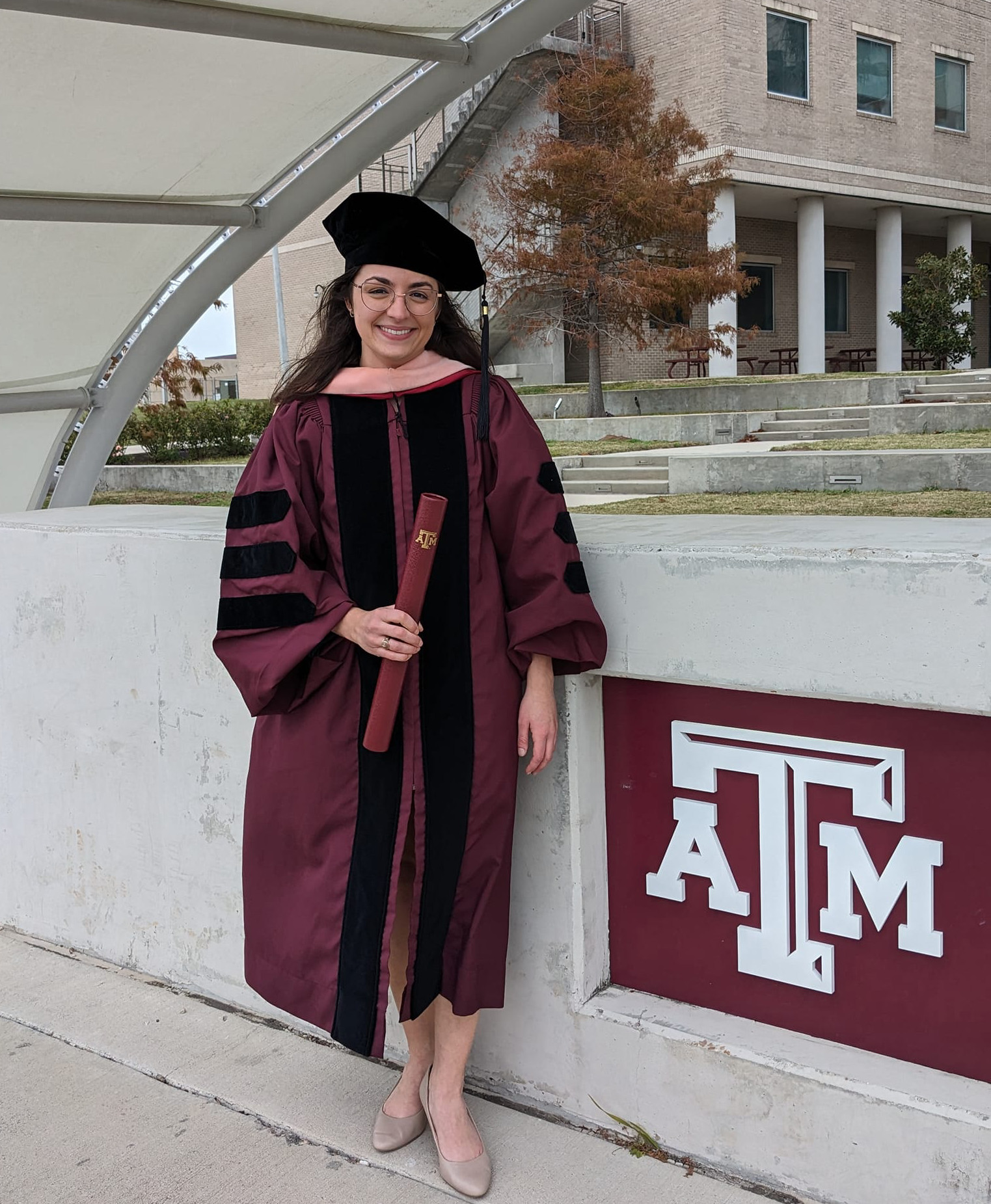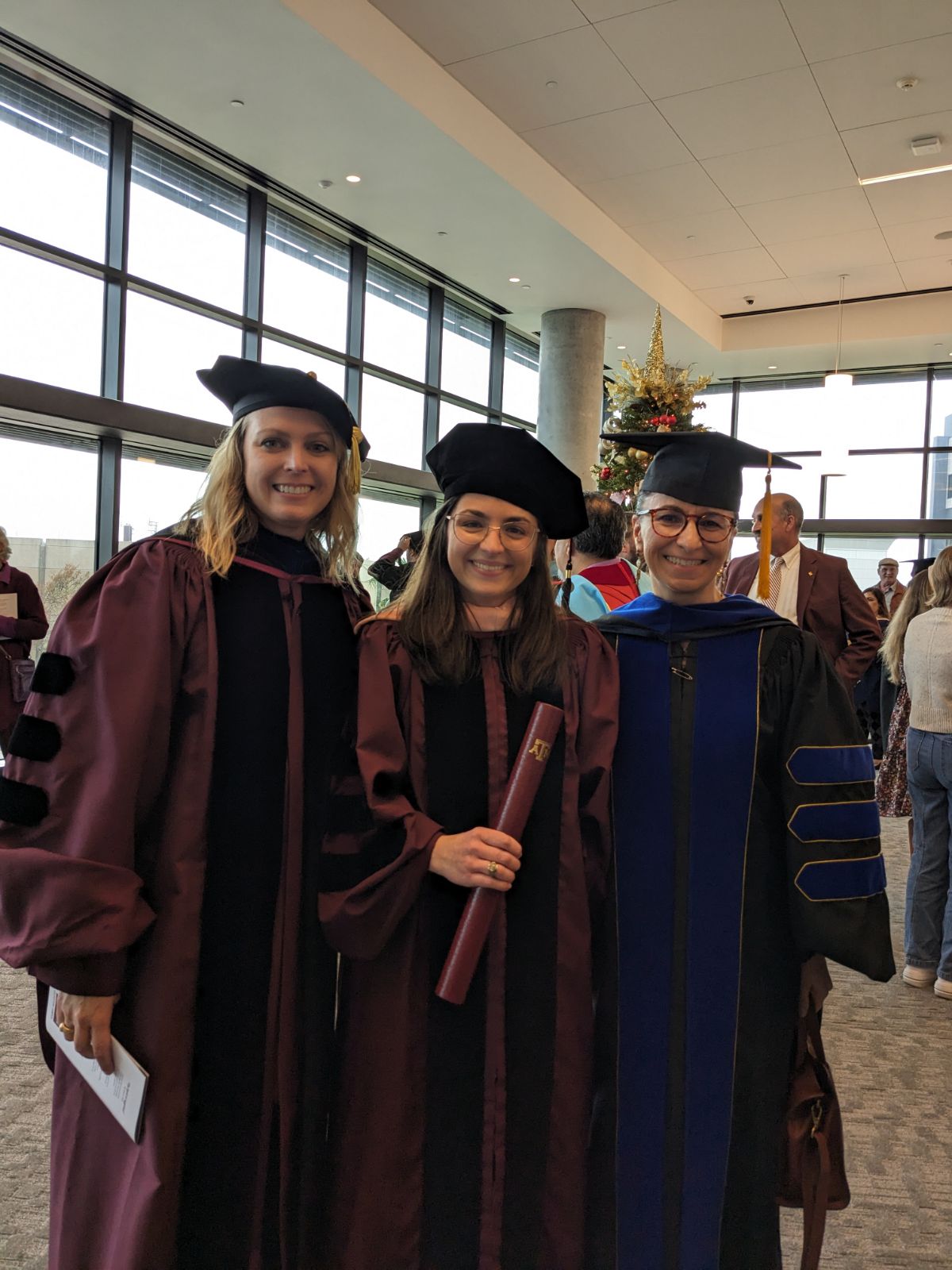Dr. Abbey Hotard Becomes First Marine And Coastal Management And Science Doctoral Graduate
December 19, 2023
Tweet
By Taylor Bounds
Born and raised in Greater New Orleans and a self-described "Katrina kid," Dr. Abbey Hotard '19, '23, has a personal stake in the resilience of coastal communities. After experiencing disaster firsthand, her research focuses on the considerations residents face when deciding to relocate or accept home buyouts to reduce the risk of future disasters.
"I study the human dimensions of adapting to changing coastal hazards," said Hotard, the first graduate from the Marine and Coastal Management and Science (MCMS) doctoral program. "In other words, I'm interested in how people make decisions about where to live and how to protect themselves from increasing flood risks."
Hotard recently started a two-year postdoctoral research fellowship with the Disaster Research Center at the University of Delaware, the oldest research center dedicated to the social study of disasters. Hotard's team focuses on the potential conflict and tradeoffs associated with fostering disaster resilience, maintaining economic prosperity, and promoting social equity within coastal communities. Although the fellowship is located in Delaware, the Texas Gulf Coast faces similar challenges as the need for disaster resilience is universal.
"I've witnessed catastrophic disasters repeatedly batter Gulf Coast communities," said Hotard. "My research is motivated by a desire to balance the protection of the places we cherish while recognizing that, even in the most optimistic scenarios for climate change, coastal retreat and climate adaptation are reshaping our communities."
Texas A&M University at Galveston is located on the Gulf of Mexico, which was ideal for Hotard.
"Not every student studying coastal and marine science gets to live and work within 10 minutes of a beach," said Hotard. She continued, "The faculty members are among the top scholars in their fields. The small campus lends itself to interdisciplinary learning and research, allowing students to explore complex world problems from multiple dimensions."
Hotard said that her academic experience at the Galveston campus was largely shaped by the opportunity to present at regional and national conferences, which helped her build confidence in her communication skills and provided opportunities for networking and relationship-building in the field. The more relaxed environment allowed her and other students to practice their presentation skills, listen to criticism and adjust accordingly.
A heavily involved student on campus, Hotard served as a senator in the Graduate and Professional Student Government and as a graduate ambassador. She was also a graduate assistant lecturer for the coastal wetlands classroom and laboratory course, teaching upper-level undergraduate students. She remembers this as one of her favorite experiences, citing the opportunity for growth and a "great group of students."
Hotard found practical experience working as a research assistant for a few faculty members, including Dr. Ashley Ross, associate professor in the Department of Marine and Coastal Environmental Science, where she contributed to several different projects involving survey development, designing maps and contributing to manuscripts for publication.

"I am thrilled that Abbey is the first MCMS student to graduate from our new doctoral program. She has been an exemplary student and citizen of our doctoral program," said Ross, also Hotard's graduate advisor. "In many ways, she has paved the way for others to follow. I look forward to all the good work she will undoubtedly accomplish in the future to benefit coastal communities. It's been such a pleasure to work with her and watch her career progress."
Though Hotard's time as a student at Texas A&M-Galveston has ended, she leaves with fond memories of the campus and her education as one of the newest members of Texas A&M's impressive network of former students.
With a sense of finality, she says, "There is something truly special about attending Texas A&M University at Galveston."
###
Media contact:bounds@tamu.edu
More:
Read more about Business, Law & Society
Read more about Health & Environment
Read more about TAMUG Research
Read more about Science & Technology
Read more about Marine Sciences
Read more about Student Life